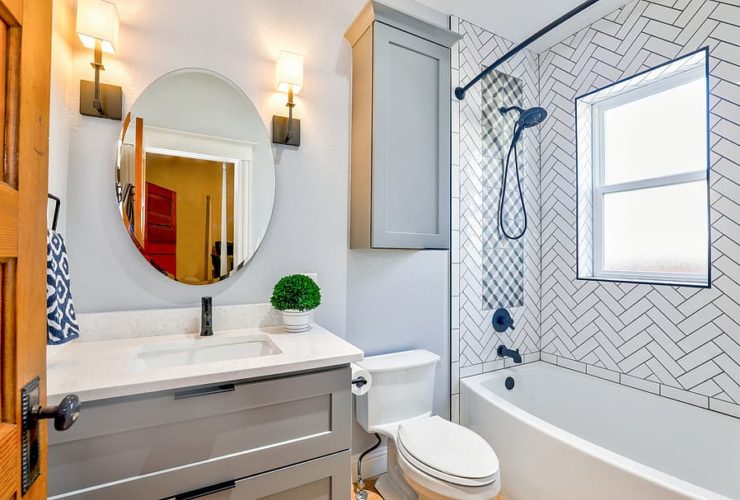Starting a home remodeling project is an exciting venture, but it often comes with a significant financial commitment. Fortunately, there are various financing options available to homeowners, with remodeling loans being one of the most popular choices. In this comprehensive guide, we’ll delve deep into the world of remodeling loans, providing you with all the essential information you need to make informed financial decisions for your home improvement projects.
Understanding Remodeling Loans: A Simplified Overview
Remodeling loans are specialized financing options tailored specifically to fund home improvement projects. Unlike standard loans, which may not cover the unique costs associated with renovations, remodeling loans are designed to provide funding for everything from basic repairs to extensive remodeling endeavors. One of the primary advantages of remodeling loans is their ability to offer potentially higher loan amounts and more flexible fund disbursement options, making them ideal for the phased nature of home improvement work.
To determine whether a remodeling loan is suitable for your needs, it’s essential to understand its specifics, including interest rates, loan terms, and repayment options, and how they align with your financial situation. While remodeling loans may offer cost-effective financing options, they may also come with certain requirements, such as collateral. By carefully evaluating these factors, you can ensure that a remodeling loan enhances your project without causing undue financial strain.
Assessing Your Financial Health
Before considering a remodeling loan, it’s crucial to assess your financial health. Can you comfortably manage the monthly payments without overstraining your finances? Understanding your budget and repayment ability is paramount to making sound financial decisions for your home improvement project.
Begin by reviewing your current income, expenses, and savings. Calculate your monthly disposable income to gauge how much you can afford to allocate towards loan repayments. Additionally, consider any existing debts or financial commitments that may impact your ability to take on additional debt. A thorough assessment of your financial health will provide clarity on whether a remodeling loan aligns with your financial goals.
Analyzing the Costs and Benefits
When contemplating a remodeling loan, it’s essential to weigh the costs against potential benefits. Ask yourself critical questions: Will this renovation significantly increase my home’s market value? Does it address essential repairs or upgrades? If your project is poised to enhance your home’s worth substantially or tackle critical maintenance needs, opting for a remodeling loan can be a prudent financial move.
Moreover, consider the long-term impact of your renovation. Energy-efficient upgrades or modernizing key areas like the kitchen or bathroom can not only boost your home’s value but also enhance your overall living experience. In scenarios where the renovation yields both immediate and long-term benefits, a remodeling loan transcends mere financing and becomes an investment in your property’s future. This thoughtful analysis ensures that the loan serves as a strategic tool for home enhancement.
Comparing Remodeling Loan Options
Remodeling loan terms and interest rates can vary widely, necessitating thorough research to find the most favorable conditions. A lower interest rate, for instance, can result in substantial savings over the loan’s lifespan, making your renovation project more affordable in the long run. Additionally, consider other loan features, such as the possibility of refinancing, fees associated with early repayment, and the lender’s reputation for customer service. By comparing these aspects among different lenders, you can secure a loan that aligns best with your immediate financial needs and long-term fiscal health.
Begin your comparison by researching reputable lenders in your area. Explore their loan offerings, including interest rates, loan terms, and eligibility criteria. Request quotes from multiple lenders to compare loan estimates and identify any discrepancies in fees or charges. Pay close attention to the Annual Percentage Rate (APR), which reflects the total cost of borrowing, including interest and fees. Additionally, consider the loan term, which can impact your monthly payments and overall financial flexibility. A longer loan term may result in lower monthly payments but higher overall interest costs, while a shorter loan term may offer savings on interest but require larger monthly payments.
Once you’ve gathered quotes from various lenders, carefully review and compare them to identify the most competitive offer. Look beyond the interest rate to assess the overall affordability and suitability of each loan option. Consider factors such as repayment terms, fees, and customer reviews to make an informed decision. Keep in mind that the cheapest loan isn’t always the best option if it comes with unfavorable terms or poor customer service. Choose a remodeling loan that not only meets your financial needs but also offers transparency, flexibility, and reliable support throughout the borrowing process.
Exploring Alternative Funding Sources
While remodeling loans are a popular choice for financing home improvement projects, they’re not the only option available. Before committing to a remodeling loan, it’s worth exploring alternative funding sources such as savings, home equity loans, or personal loans. Depending on your circumstances, these alternatives may offer more favorable terms and flexibility, providing viable alternatives to traditional remodeling loans.
FAQ:
Q: What is a remodeling loan?
A: A remodeling loan is a specialized form of financing designed to fund home improvement projects, covering costs ranging from basic repairs to extensive renovations.
Q: How do remodeling loans differ from standard loans?
A: Remodeling loans are customized to meet the unique needs of home improvement projects, offering potentially higher loan amounts and more flexible fund disbursement options compared to standard loans.
Q: How can I determine if a remodeling loan is suitable for my project?
A: Consider factors such as interest rates, loan terms, repayment options, and your financial situation to determine if a remodeling loan aligns with your needs and budget.
Q: What are the benefits of opting for a remodeling loan?
A: Remodeling loans can provide cost-effective financing options for home improvement projects, potentially increasing your home’s value and enhancing your living experience.
Q: Are there alternatives to remodeling loans?
A: Yes, alternatives such as savings, home equity loans, or personal loans may offer more favorable terms and flexibility depending on your circumstances.
Stay Connected With Us:
Have questions or want to share your thoughts about remodeling loans? Join our friendly community on Instagram. It’s a great place to get quick advice, share your experiences, and stay updated with our latest tips and insights. Let’s start chatting, and if you’d like to receive a free estimate, we are here for you too! We’re always here to help make your home remodeling journey easier and more enjoyable. Happy Remodeling!




